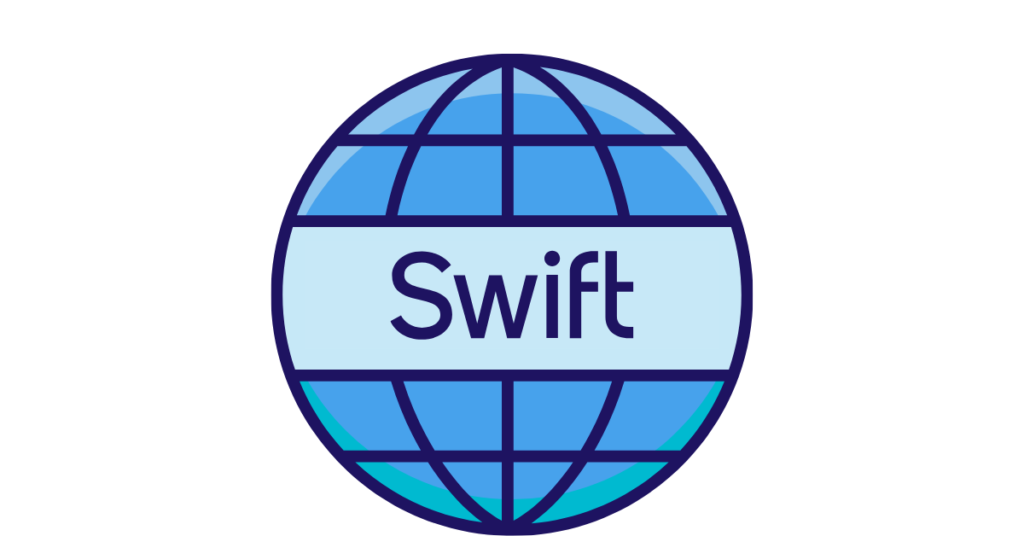So what is correspondent banking?
A correspondent bank is a financial institution that offers services to another financial institution, usually in a different nation. It operates as a middleman or agent for another bank, arranging wire transfers, performing business transactions, receiving deposits, and gathering documentation.
Domestic banks will most likely use correspondent banks to service transactions that originate or are completed in other countries. In addition, domestic banks use correspondent banks to access international financial markets and serve international clients without having to operate branches abroad.
What Is a Correspondent Bank?
A correspondent bank is a bank in one nation permitted to provide services to a bank or financial institution in another country. Currency exchange, processing business transactions and trade documentation, and money transfers are the most frequent services provided by a correspondent bank.
How Does a Correspondent Bank Operate?
Correspondent banking is based on a deal between a foreign and a domestic bank to open a correspondent account, also known as a Vostro or Nostro account, at one bank to benefit the other. Correspondent banking generally includes the concept of reciprocal accounts that link two banks. These accounts are set up so that a domestic bank can make payments or money transfers on behalf of a foreign bank.
These correspondent accounts allow banks to manage international financial transactions for their customers that involve foreign currency exchange, such as those that often occur between an exporting business in one country and an importer in another.
What does the process look like?
A bank customer in one country must pay for goods from another country’s suppliers. The customer’s domestic bank determines the necessary foreign currency exchange transaction to permit suitable payment in the seller’s currency.
It deducts the necessary amount from the customer’s account. Then, it notifies its correspondent bank in the supplier’s nation to pay the matching amount to the supplier from the domestic bank’s correspondent account with the foreign bank in the supplier’s currency.
Third-party banks are referred to as correspondent banks. They bridge the gap between various financial institutions. As a result, they provide Treasury services between sending and receiving banks, particularly those located in different countries—for example,
- exchange of currencies
- make sure everything is in order
- settlement
- transfer of funds by wire
- transfer of money
When clients travel abroad, correspondent banks may act as agents to handle local transactions for them. For example, correspondent banks can receive deposits, process documents, and act as money transfer agents locally.
What are Nostro and Vostro Accounts?
Nostro and Vostro accounts are the accounts held between correspondent banks and the banks for which they offer services. The holding bank refers to an account held for another bank as a Nostro account. The counterparty bank refers to the same account as a Vostro account, which means “your account on our records.” Generally, both banks in a correspondent relationship maintain accounts for each other to track debits and credits between them.
Correspondent banks are an essential aspect of the financial industry since they allow domestic banks to continue to operate when they can’t create branches in another country. For example, a small local bank with clients in many countries can form a partnership with a correspondent bank to suit its clients’ foreign needs. They have access to the international financial market as a result of this. As a result, the correspondent bank will charge a fee for this service, usually passed on to the customer by the local bank.
Nostro vs. Vostro Account
The terms “Nostro” and “Vostro” refer to the same bank account. The phrases are used when one bank has money on deposit with another bank, usually in the context of international trade or other financial operations.
Both banks in the partnership must keep track of the amount of money held by one on behalf of the other. The phrases Nostro and Vostro are used to distinguish between each bank’s two sets of accounting records.
The Latin words Nostro and Vostro are variations on the words “ours” and “yours,” respectively. The origins of modern retail banking may be traced back to the 13th and 14th centuries in Italy, where depositors and retail banks kept track of their account balances. The depositing customer held the Nostro ledger, while the bank kept the Vostro ledger.
Account Nostro
A Nostro account is a term used by Bank A to refer to Bank B’s “our” account. Nostro is a colloquial expression for “our money on deposit at your bank.”
The Nostro account records a bank’s money on deposit with another bank. These accounts are frequently used to streamline commerce and foreign exchange settlements. In contrast to regular demand deposit bank accounts, Nostro accounts are usually held by financial institutions and are denominated in foreign currencies.
Account Vostro
Bank B refers to the money on deposit at Bank A as “vostro.” The word “vostro” means “your money” and refers to “your money on deposit at our bank.” A Vostro account is similar to any other bank account. The account is a record of money due to or kept by a third party, most commonly another bank, although it can also be a firm or an individual.
A bank in the United Kingdom or the United States holds a Vostro account on behalf of a foreign bank. The money deposition happens in the currency of the country where the Vostro account is present.
Example of Nostro vs. Vostro
Consider the following scenario. GTBank, a Nigerian bank, receives a large amount of money in the form of remittances from its customers in the United States. Because GTBank does not have a physical presence in the United States, it enters into a contract with Citibank to have a U.S. dollar account opened for it remotely. One will place money received from American clients and businesses sending money to GTBank account holders in Nigeria in GTBank’s Citibank account.
Citibank will send the funds to GTBank’s US dollar account in Nigeria via SWIFT. The Society for Worldwide Interbank Financial Telecommunications, or SWIFT, is a member-owned cooperative. It provides its members with safe and secure financial transactions. Following the completion of the transfer, GTBank receives the dollar-denominated monies, translates them to the local currency (the naira), and puts them into the receivers’ local accounts.
GTBank’s Citibank U.S. dollar account is a Nostro account in GTBank’s eyes. In addition, Citibank maintains a Vostro account for GTBank in US currency.
Cash assets are Nostro accounts with negative balances. On the other hand, Vostro accounts with a credit balance are termed liabilities. Computerized accounting makes it simple to reconcile Nostro and Vostro accounts by simply entering “+” or “-” indications in the respective accounting systems of the banks.
How do International Wire Transfers work for Correspondent banks?
International wire transfers frequently happen between banks with no prior financial relationship. A bank in San Francisco, for example, that receives instructions to wire funds to a bank in Japan cannot do so without first establishing a working relationship with the receiving bank.
The Society for Worldwide Interbank Financial Telecommunication (SWIFT) network handles the majority of international wire transfers. The originating bank does not have a functioning connection with the destination bank. So, it can search the SWIFT network for a correspondent bank that does. Then, the originating bank sends the transferred funds to its Nostro account maintained at the correspondent bank after selecting one with agreements with both sides of the transfer.
Intermediary Bank vs. Correspondent Bank
Although there are some parallels between the correspondent and intermediate banks, such as the fact that they both function as third parties for other banks, there is a significant distinction between them. An intermediary bank completes transactions involving a single currency, whereas correspondent banks generally handle transactions involving numerous currencies. They’re essential for domestic banks that aren’t big enough to manage these transactions.
An Overview of Correspondent vs. Intermediary Banks
Beneficiary banks utilize correspondent and intermediate banks as third-party banks to enable international fund transfers and transaction settlements. The beneficiary bank is the receiving bank where a person or company has an account.
A person or corporation would have an account with an issuing bank in both circumstances. The procedure of transmitting funds from the issuing bank to the beneficiary bank is then completed by that bank using a correspondent or intermediary bank.
There are inconsistencies in the explanation of correspondent vs. intermediary banks. For example, correspondent banks can be separate from intermediary banks, or they can be a form of the intermediary bank that is indistinguishable from intermediary banks. It all depends on where the account holder is located in the world.
Banks as Correspondents
A correspondent bank acts as a middleman between the issuing and receiving banks, providing services on behalf of the latter. Domestic banks frequently use correspondent banks as their agent abroad to complete transactions that begin or end in another country. On behalf of the domestic bank, the correspondent bank can carry out a variety of transactions. These services include completing wire transfers, taking deposits, acting as transfer agents, and arranging papers for another bank.
Banks that act as intermediaries
The role of intermediary banks is comparable to that of correspondent banks. An intermediary bank is a link between an issuing and receiving bank, which may be located in separate countries. There is a frequent requirement for an intermediary bank when international wire transfers take place between two banks. This is especially when both banks are in different countries with no prior financial relationship.
Important distinctions
There is sometimes a distinction between the unique functions that intermediary and correspondent banks play in the United States and other nations.
One distinction is that correspondent banks are frequently in charge of multi-currency transactions. For example, a correspondent bank would be liable for all transactions from the US dollar to the Danish Krone. This is if the person initiating the transfer is based in the United States. Moreover, it’s applicable while he is sending money to someone in Denmark.
Correspondent banks are often located in the nations where the two currencies are local. However, a bank may be based in a separate country occasionally.
Intermediary banks transfer cash to complete international transactions, but only for one currency. A domestic bank is usually too small to handle international payments in this situation. Therefore, it turns into an intermediary bank.
Particular Points to Consider
All banks accept wire transfers, an electronic method of delivering money to another person or entity. However, international wire transfers are more expensive and complicated to complete.
Intermediary banks deal in foreign transactions in particular parts of the world, such as Australia or EU member countries. There is no distinction whatsoever between the correspondent and intermediate banks.
The Society for Worldwide Interbank Financial Telecommunication (SWIFT) network handles the majority of international wire transfers. Suppose the issuing and receiving banks do not have a working relationship. In that case, the originating bank can use the SWIFT network. It will help them to find a correspondent or intermediary bank that has agreements with both financial institutions.
Contact Capitalixe for correspondent banking solutions
At Capitalixe, we specialise in helping small, offshore, and emerging market banks obtain payment and banking solutions.
Our job is to match your company with the most appropriate and beneficial financial solution from our extensive network of over 100+ reputable payment and banking providers we work with worldwide.
By understanding your business goals, payment requirements, and market positioning, we take the time-consuming pain away of going to market and provide you with the solutions that are best suited to your needs.
The best part of all is our services are free of charge.
Feel free to reach out to us for a complimentary consultation. We will be more than happy to help you.
COO & Co-founder of Capitalixe





